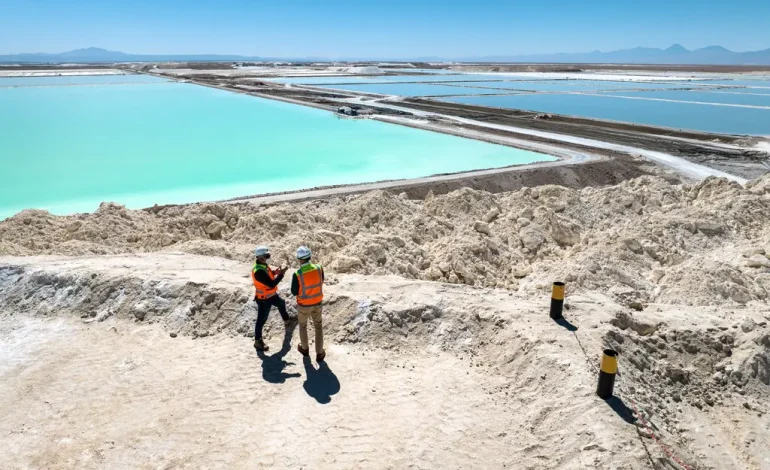Researchers from the United States Geological Survey (USGS) and the Arkansas government have announced a significant discovery of lithium, a critical material for electric vehicle batteries, in the Smackover Formation, a large underground brine reservoir in Arkansas.
According to their findings, the region could contain between five million and 19 million tons of lithium, potentially enough to meet global demand for the metal.
This discovery comes as demand for lithium is expected to skyrocket, driven by the growing need for rechargeable batteries in electric vehicles and other technologies. The researchers used water testing and machine learning techniques to analyze lithium concentrations in the brine, revealing that the Smackover Formation could hold a substantial portion of the US lithium supply. This geological area spans parts of Arkansas, Louisiana, Texas, and other southern states.
Several companies, including Exxon Mobil, are already exploring methods to extract lithium from the region. The key technique being tested is direct lithium extraction, which involves removing lithium from brine using filtration technologies. This approach is considered more environmentally friendly than traditional evaporation methods used in countries like Chile, where lithium is extracted by allowing brine to evaporate in large ponds.
Exxon Mobil has drilled exploratory wells in Arkansas and is evaluating the feasibility of scaling up lithium production. The company aims to begin production by 2027, with a goal of supplying enough lithium by 2030 to power over a million electric vehicles annually.
While direct lithium extraction could reduce the environmental impact compared to conventional methods, it is currently more expensive. Companies are working to refine this technology to make it more cost-competitive, which will be crucial for the success of lithium production in Arkansas.
The discovery in Arkansas is part of a broader effort by the US government and the energy industry to reduce reliance on lithium imports from countries like Australia and South America, where the majority of global lithium is currently produced. The Biden administration has encouraged domestic production of critical minerals like lithium to strengthen supply chains and create jobs.
David Applegate, Director of the USGS, emphasized the potential economic benefits of increasing US lithium production, highlighting its implications for employment, manufacturing, and supply-chain resilience. Researchers have also identified other potential US lithium resources, including the Salton Sea in California, where companies are exploring similar extraction techniques.
As lithium demand continues to rise, discoveries like the one in Arkansas could play a crucial role in meeting global needs and supporting the transition to clean energy.
With unput from the Hill and the New York Times.









